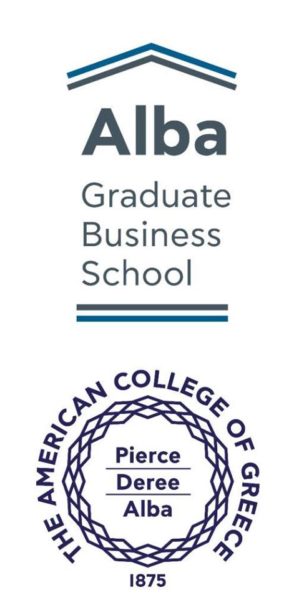Content is The King
In our previous post, we discussed some issues that you should avoid when writing your CV, paying special attention to format and style. In this post, we are going to do a follow-up of both that previous post and the first one we published with basic concepts about CV’s and résumés, but now focusing on the content that you are going to write. We should keep in mind that there are thousands of things that could be identified as “mistakes” depending on the judge. However, there are some basic aspects that are crystal clear for everybody and those are the ones we are going to focus on today. Let’s go:
Do your research
This is the first thing you should do, even before starting to write you have to do an extensive research about what are the employers going to appreciate in their candidates’ CV. It is a general rule -as we commented in previous posts- that your curriculum has to be case-sensitive. This means that you should write a specific CV for every specific position you are applying for. There is no need for writing a different document from scratch every time you are applying for something. However, your chances will increase if you do small changes. Use the correct keywords, and mention specific skills for the specific position.
Using the internet, it should be easy to find information about the company, previous job offers, most demanded skills, and other sources of information that might be useful for you. We already mentioned that your CV shouldn’t be very long. So it is a very important issue to choose wisely what you are going to write and what you are going to skip.
Choose wisely what you are going to write in your CV and what you are going to skip.
Résumé not targeted to the role
This is a great problem that is deeply related to the previous point. When you are applying for a grant or a position, your CV should include what you think is the exact amount of information for that position. Some points are going to be sensitive to the specific application process and you should further explain them than others.
For example, if you are applying for a job offer in the field of computer sciences, there is no point in you explaining your experience as a lifeguard or working in a kindergarten when you were younger. You can choose to write that as previous experience. Don’t focus on it as it is almost useless information for the employer.
You should focus on your skills related to the position and previous experience in the field, leaving other job experience and skills just as secondary parts of your CV, supporting you but without being essential. However, be careful, if you don’t include your period working in a swimming pool or a kindergarten, maybe you are going to leave time gaps in your CV that will give the impression that you didn’t do anything at all maybe for a year, or that the job you are applying for would be the very first in your life, which is going to be negative for your application.
Related:
[Your CV Is Not Your Life! 5 Steps To Understand Your Professional Path]
[Curriculum Vitae: The Core Of Your Applications]
[Curriculum Vitae: Format Mistakes To Avoid]
Generic cliches and descriptions
Expressions and descriptions like hard-working, great team player, proactive… are not going to play in your favor. This is due to two reasons: first, these concepts are vague and do not describe any skill or ability accurately; second, these terms are nowadays widely overused and no longer describe anything, most of the times are just generic terms or keywords used to cover more space in CV.
In summary, when you are describing your skills you should be concrete, avoiding overused terms with ambiguous meaning. That doesn’t mean avoiding at all costs using adjectives to describe your abilities. You should be mindful of the way you use them and the exact meaning you are communicating with the person responsible for judging your application. Besides, you might end up in the position of having to defend those claims in a personal interview. So, again, choose wisely what to write in your CV when trying to sell yourself and never lie.
Show your impact
If you are trying to let potential employers know your abilities and previous success, you should give them the numbers behind your statements. It is very common to read CV’s in which the candidates affirm they increased sales or did a great job in their previous positions. But with no real numbers supporting them, their claims are useless.
You are trying to impress and demonstrate that you are the appropriate person for a job position. Just show the facts. If you increased the sales in your previous position, show proof of that, show the percentages and the results of your work. If you worked in research, do not limit yourself to state that your job was useful and important for your field, show your publications, collaborations… The facts have to go always first, if not you may just be elucubrating or exaggerating.
The proof goes first, if not you are just elucubrating.
Related:
[How To Land An Amazing Internship]
[How To Find The Right Side-Job As A Student]
[The Best Student Jobs On Remote You Can Find Right Now]
Too many skills
No employer wants to lose his or her time reading long unstructured CV. Neither reading a never-ending list of skills that are useless for the offered position. Choose, filter, ask yourself which of your skills are useful and interesting for the potential employer and which ones aren’t. As usual, this decision is up to you and up to your particular circumstances. Computer skills are most of the times welcomed, so do skills related to health or first aid. However, if you are applying for a salesman position maybe you should just skip that course you took on dancing or control of invasive species.
Think about it for a second. Imagine that you are an employer reading a hundred CV’s in a single morning and suddenly you find one with three pages of skills unrelated to the position. And it includes swimming, cooking, first aid, computer skills, internet browsing… What would you think? Most probably you would think that this person is either lying or just trying to fill space to give a better impression. Don’t be that person.
Long lists of skills just make you look as either a liar or a person trying to fill space with useless skills.
This is all for now. You might also want to check out our article on the Top 5 Tips To Make Your Resume Stand Out.
With this and our previous posts, you should have a clear idea of how to structure and build up your CV from scratch, how to do small but important changes depending on the situation and the position you are applying for and how to avoid classic mistakes that would drop you out of the selection process.
If you are a newbie in the EDUopinions blog, you can go back and read past articles like general information about grants and grant applications or the toolbox every student needs. Also, if you like our posts, like & share on our Facebook page, comment, and give your opinion on our web page, that will help us keep growing and helping other students. Thank you for reading and see you again soon.
Discover opinions from students to students!
Are you a student? Select your University and give your opinion!
Recent Posts

Although it's possible to sail through university without giving a thought to what you're going to do afterwards - concentrating only on enjoying ...

Ever thought about studying in Greece? Between the sunny weather, incredible history, and breathtaking coastline, you could also get a top business ...

Norway: it's a land of awe-inspiring nature, adrenaline-inducing outdoor sports, and picturesque cities. But have you ever thought about studying ...

